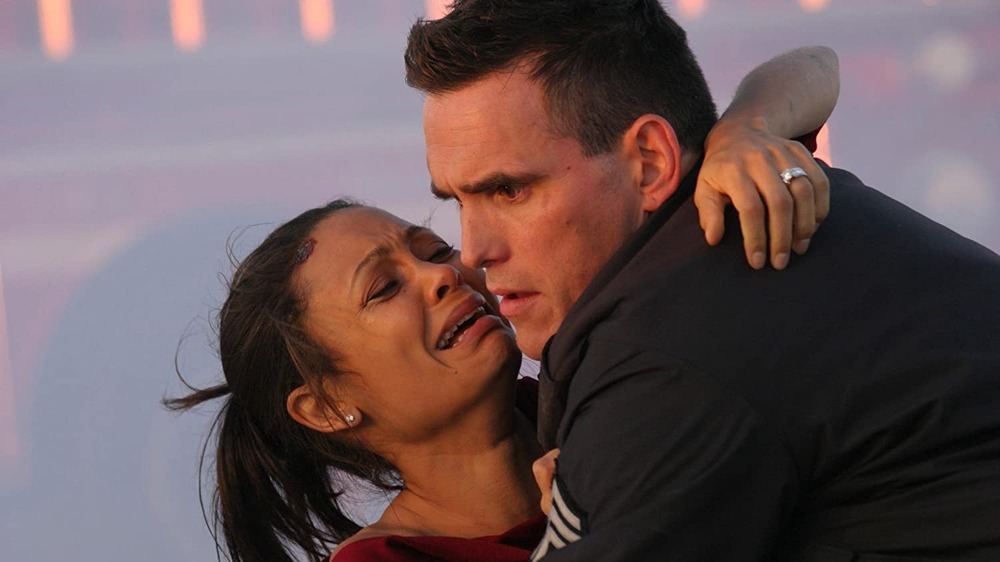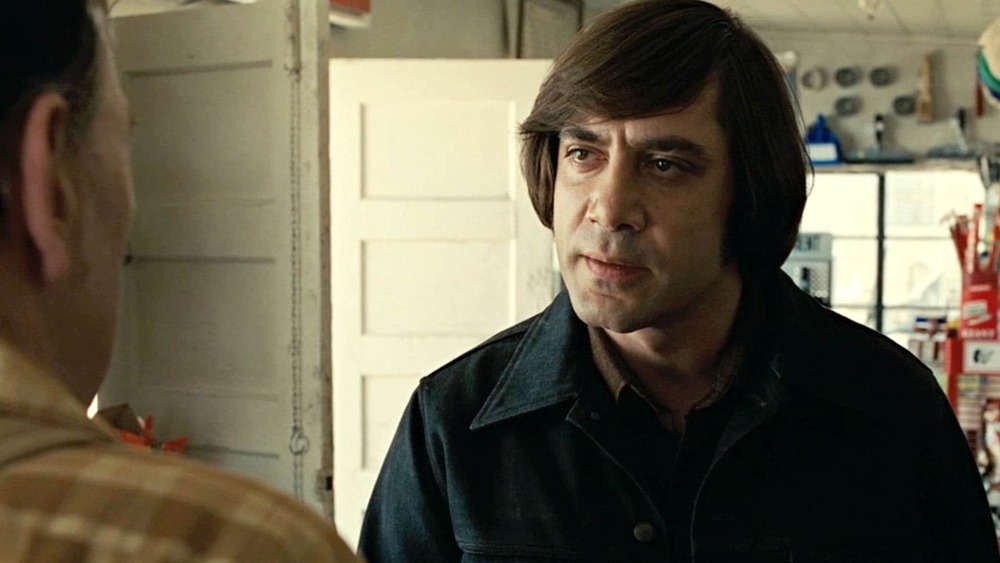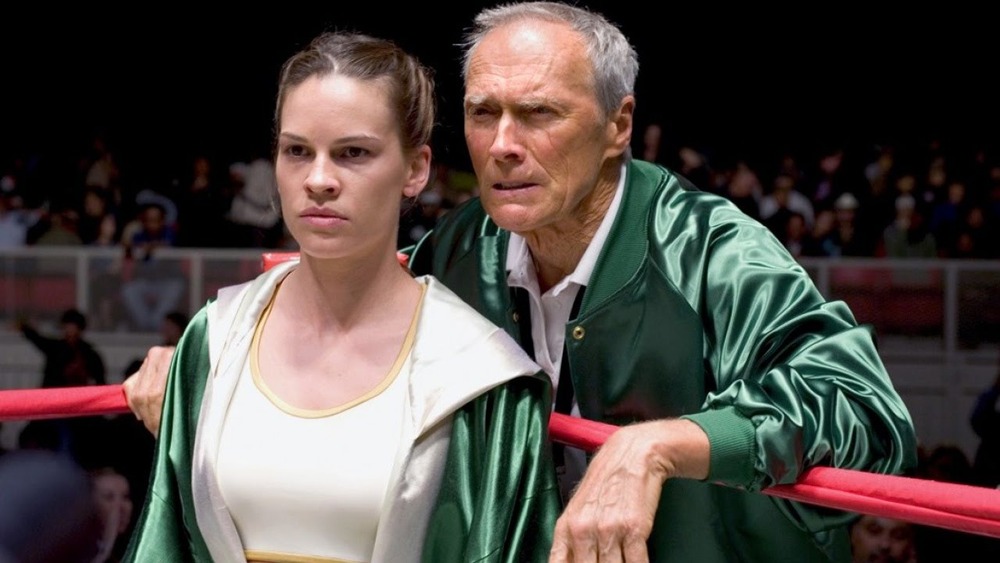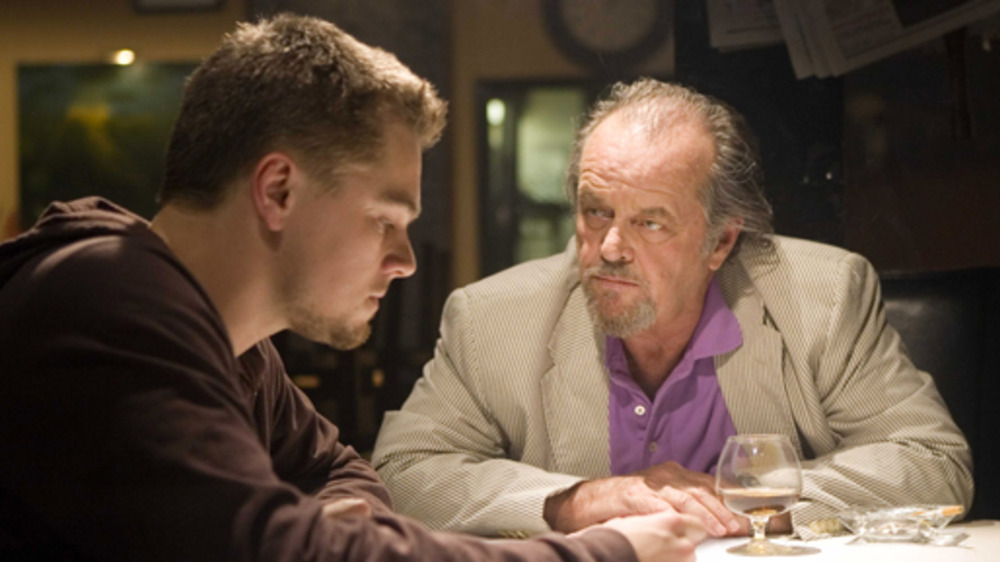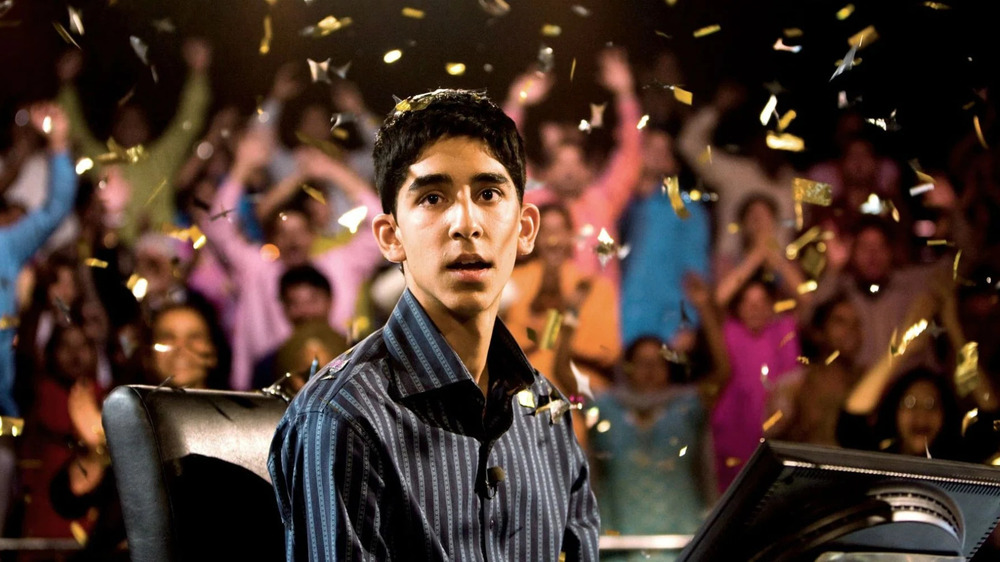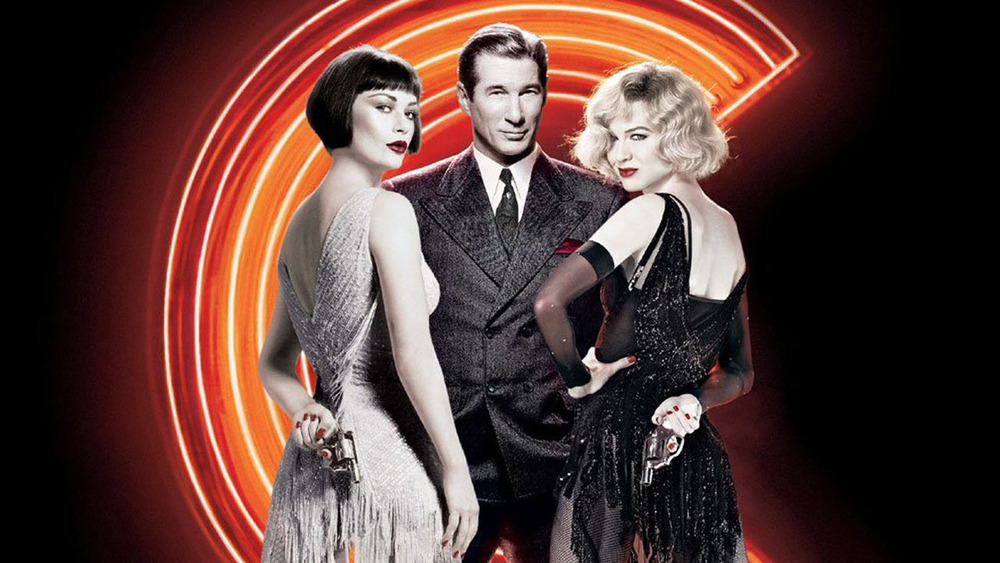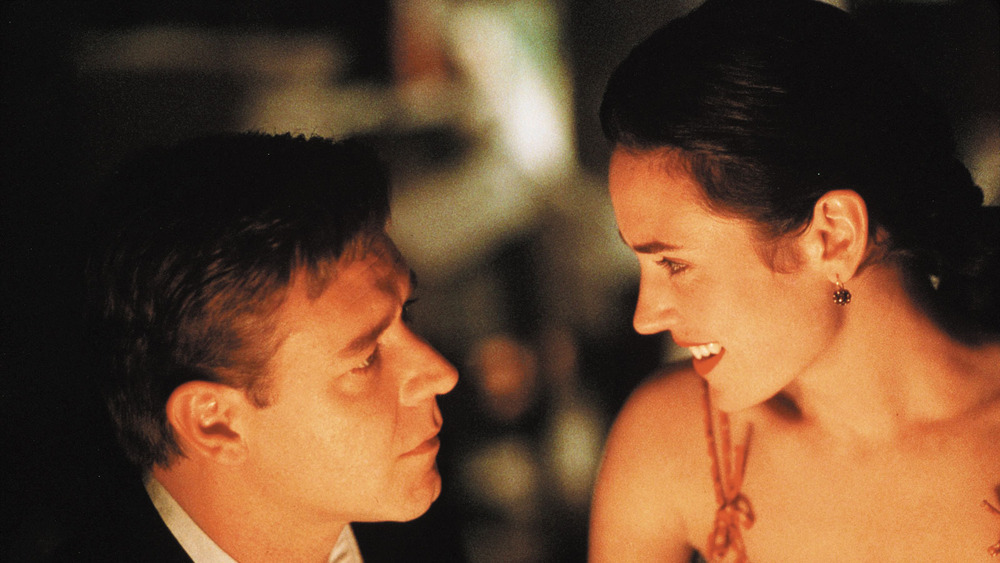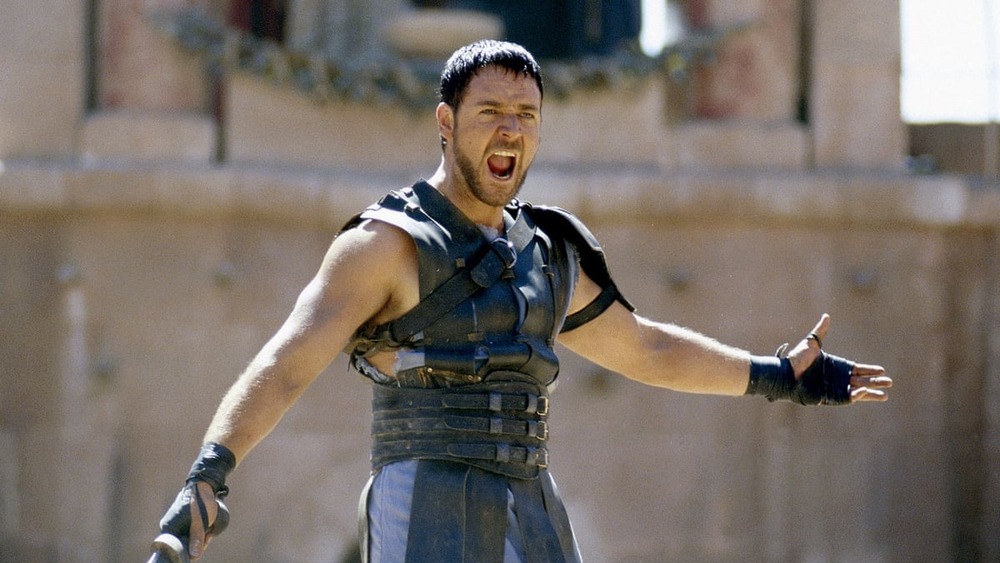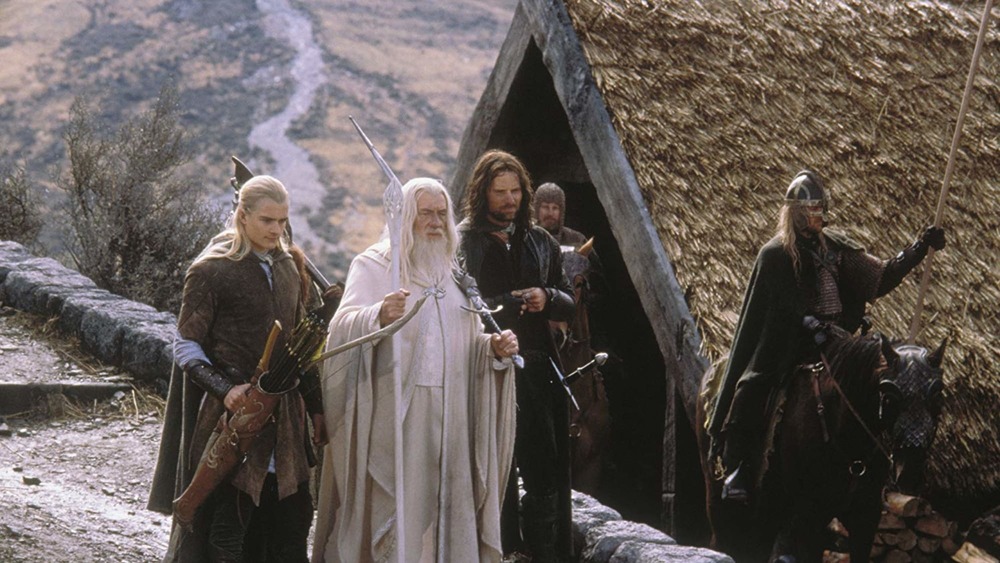Highest-To-Lowest Grossing Best Picture Winners Of The 2000s
For the longest time, the terms "Best Picture winner" and "box office hit" were largely interchangeable. Audiences had flocked to see movies like Titanic, Rain Man, Dances With Wolves or Forrest Gump, all of which not only took home the most prestigious trophy at the Academy Awards, but also became cultural touchstones.
In more recent years that tradition has changed a bit, with Oscar voters gravitating towards more challenging indie features like Spotlight, Birdman and Moonlight that did respectable numbers considering their low-end budgets, but were hardly crafted to become box office powerhouses. While some modern Best Picture winners like Argo and Green Book have shown that you can still make money and take home Oscar glory, they seem to be the exceptions these days.
That's a sharp contrast to the Best Picture winners seen in the century's first decade. Though this timespan ended with the lowest-grossing Best Picture winner on record, the 2000s were largely jam-packed with a memorable mix of crowd-pleasers/critic darlings.
For the most part, it doesn't take a rocket scientist to figure out why these movies were hits even before they were crowned Academy Award victors. These films either had big brand-names (like Lord of the Rings and Chicago), conceptually entertaining stories to hook audiences, or other distinctly attractive factors. Below, we examine why these Best Picture winners of the 2000s were such substantial hits — and appreciate a bygone era when an Oscar darling could also become a must-see cornerstone of the zeitgeist.
The Hurt Locker was a small but mighty box office performer
There were a lot of issues facing The Hurt Locker when it hit theaters in June 2009. For one thing, grim dramas about the Iraq War had not traditionally been fodder for box office success. For another, it was distributed by Summit Entertainment, a then-newbie studio that had found success with Twilight but little else. It was also headlined by Jeremy Renner, a relative unknown who hadn't starred in a major theatrical release before. Rave reviews and distinctive marketing materials, though, ultimately helped The Hurt Locker stand out in the summertime marketplace.
Kathryn Bigelow's powerful drama about a rebellious Sergeant assigned to a bomb squad that could hardly afford rogue-minded loners eventually grossed a respectable $17 million in its domestic run, an impressive achievement on a number of fronts.
Most notably, Summit never brought The Hurt Locker into wide release, as its theater count peaked at 535 locations. This made The Hurt Locker by far the highest-grossing domestic release of 2009 to never play in 600+ theaters. In the scope of history, The Hurt Locker's performance does make it the lowest-grossing Best Picture winner of all-time. However, the majority of past Best Picture victors have been major studio releases with crowd-pleasing storylines, not indies with bleak subject matter. Given the challenges it had to face in terms of tone, distributor and theater count, The Hurt Locker completed its mission with honors.
Crash was a summertime sleeper hit
Traditionally, if you have a movie that could work like gangbusters during awards season, you want to release it during the holidays. That way, the film can open closer to major awards ceremonies and be on the minds of both awards voters and general moviegoers. However, history has its fair share of movies released earlier in the year that not only scored some award season recognition but went on to win Best Picture.
Case in point, Crash, which debuted in theaters all the way back in May 2005. In another departure from release norms for awards season movies, Crash opted to open in wide release right away rather than debut in limited release and expand from there.
Debuting in 1,864 theaters, Crash opened to a solid $9.1 million and, buoyed by positive word-of-mouth and lack of competition in the marketplace, proceeded to hold on nicely in the weeks following, only dipping more than 31% from weekend-to-weekend just once in the first ten weekends of its domestic run. It eventually grossed a solid $53.3 million six whole months before it won the Best Picture Oscar at the 78th Academy Awards. The fact that audiences had already widely seen the film meant that Crash didn't get a box office boost after its Best Picture win, only scoring an additional $1.2 million in its post-Oscar screenings. But it didn't matter much because Crash had already achieved profitability before its win, shattering customary Oscar-bait release plans in the process.
No Country for Old Men had plenty of room for moviegoers
There's been a lot of modern discourse surrounding how many Best Picture winners in the 2010s just weren't big hits. The trend is due to multiple factors, one being that the Oscars have increasingly embraced challenging material like Birdman and 12 Years a Slave rather than crowd-pleasers like Driving Miss Daisy or Forrest Gump.
If you're a more unorthodox Best Picture winner, you're less likely to drum up gargantuan box office. An example of this is No Country for Old Men, a lower-grossing Best Picture but also a solid hit considering how, in many ways, it's the very antithesis of a broadly-appealing production.
A unique project like Old Men needed a unique release pattern, so distributor Miramax very carefully unleashed the movie on the general public. It didn't play in a massive amount of theaters in 2007, but by the end of the year, the more strategic release plan had resulted in a fantastic $41.6 million haul. It wasn't long before Old Men beat out O Brother, Where Art Thou? to become the biggest Coen brothers venture ever domestically with a $74.2 million gross. That was a fine haul for a production that was anything but mass-appealing with its grim tone, lack of major movie stars and an ambiguous ending that defies anything resembling a tidy resolution.
Million Dollar Baby was a knockout hit
Not every Clint Eastwood directorial effort is a flat-out hit (just ask Richard Jewell), but the ones that do resonate with audiences knock it out of the ballpark financially. Take his 2004 boxing drama Million Dollar Baby, which saw Eastwood paired with Hillary Swank in a more somber approach to the sports drama. Despite its sad tone, Baby ended up becoming a tidy box office hit, grossing $100.4 million domestically.
The film's box office prospects were boosted by how it occupied a widely-beloved genre (the sports drama) and featured one of cinema's most beloved figures in the form of Eastwood. It also helped that Warner Bros. was savvy in its strategy for rolling out Million Dollar Baby to the public.
The film played for a month in limited release, generating strong word-of-mouth, before it went into wide release just a few days after it scored seven nominations at the 77th Academy Awards. In the wake of those nods, Baby grossed a strong $12.2 million. The feature held on nicely in the weeks afterwards before getting another box office boost when it took home Best Picture. The weekend after that victory, Baby amassed another $8.1 million before sticking around for the rest of March 2006. By the time its leggy domestic box office run drew to a close, Million Dollar Baby had grossed $100.4 million, enough to make it Eastwood's sixth-biggest directorial effort ever.
The Departed took Martin Scorsese to new financial heights
Leonardo DiCaprio's undercover Billy Costigan character in The Departed may insist to mobsters that he's "not a cop," but one thing he can't argue against is being the star of a smash hit at the box office.
While some Martin Scorsese movies have had to wait until home video to garner widespread notoriety, The Departed was an immediate smash hit. Banking on the allure of its star-studded cast and the appeal of Scorsese returning to the crime movie genre, The Departed exploded onto the domestic marketplace in October 2006 with a $26.8 million opening. Positive word-of-mouth kept the movie going for weeks on end, with The Departed never experiencing a weekend-to-weekend drop over 29% until its sixth weekend of release.
That made The Departed another hit that came long before awards season. The day before the nominees for the 73rd Academy Awards were announced, The Departed had already snagged $121.7 million. After The Departed scored big at the Oscars announcements, the 5-times-nominated flick got another jolt of life and added $10.6 million to its domestic cume. This brought its lifetime domestic haul up to $132.3 million. In the process, The Departed became Scorsese's biggest movie ever domestically in addition to being the movie that finally gave Scorsese some Oscar glory (still, to this day, his only Oscar!). It was a success that even Billy Costigan would cop to.
Slumdog Millionaire defied the box office odds
At one point in time, Slumdog Millionaire didn't look like it would get a chance to even play in movie theaters.
When Warner Bros. inherited domestic rights to the production in 2008, they felt it would fare better as a straight-to-DVD title — so the Slumdog producers quickly rallied for a new domestic distributor, finding a bold one in Fox Searchlight. Clearly, this specialty studio saw potential in the drama, but even the most optimistic studio exec probably wasn't predicting it would become a $100 million phenomenon.
Debuting in the middle of November 2008, Slumdog took off like a rocket and managed to gross $13.8 million domestically before it ever reached wide release. Once it expanded to over 600 locations on Christmas Day, the Danny Boyle tale of an impoverished Mumbai teen with dreams of going on a game show really took off, generate substantial business even before Oscar nominations were announced.
The feel-good underdog vibes of the movie resulted in tremendous word of mouth, and when Slumdog scored ten Oscar nods it then grossed $10.6 million over the next weekend, its second biggest single domestic weekend sum ever. Slumdog kept on being an impressive domestic box office performer from there, grossing another $43 million after winning the Best Picture Oscar. Of course, no movie can stay in theaters forever, but it felt like Slumdog was determined to stay there, eventually finishing its domestic run with an astounding $141.3 million. Not bad for a movie that almost didn't even play in theaters.
Chicago sang a tune audiences couldn't resist
In a post-Greatest Showman/La La Land world, it's easy to forget that it wasn't too long ago that live-action musicals were considered box office poison. Once a fixture of the big screen, the genre had (save for the occasional fluke like Grease) largely laid dormant since the days of Paint Your Wagon. But with Chicago, the musical came roaring back both as a box office force to be reckoned with, and an award season powerhouse.
Chicago opened in the final days of December 2002 with gargantuan limited release numbers and quickly expanded into wide release, where it also found noteworthy box office success. Chicago had the helpful advantage of being based on a beloved Broadway musical, which helped to give it some immediate brand-name recognition with prospective moviegoers. It was also celebrated at the time as doing for musicals what Pirates of the Caribbean had done for pirate films — bring a genre back from the dead.
However, its enduring box office success reflected that it was able to stand on its own two feet. In particular, its persistently strong showing at big awards shows like the Golden Globes and the Oscars ensured that Chicago would be playing for weeks on end, with the film still drumming up single weekend grosses of over $5 million as late as the first weekend of April. When the dust settled and the dance routines were finished, the Best Picture Oscar was handed out to a Chicago that had already grossed $170.6 million domestically. It was the kind of mammoth haul a musical hadn't seen in decades, and also one of the biggest grosses for a Best Picture winner in the 21st-century.
A Beautiful Mind was a gorgeous box office performer
A Beautiful Mind, Ron Howard's 2001 film about a brilliant but haunted mathematician, struck a chord during its initial theatrical run that most films can only dream of having with audiences and critics.
Post-Gladiator, Russell Crowe guy was a hot commodity. Putting him in an acclaimed biopic was just the ticket to prove he was more than a muscle-bound guy shouting in a Roman colosseum. A Beautiful Mind first hit theaters over Christmas weekend in 2001, where its strong numbers encouraged distributor Universal to take it wider right away. The film quickly expanded into 1,853 locations, where it amassed an impressive wide weekend debut of $16.5 million.
Though that would be its highest individual weekend gross in its domestic run, A Beautiful Mind was far from over. This feature kept right on chugging in the months that followed, and even managed to stick around in wide release all the way through the final weekend of April. Positive word-of-mouth fueled its box office run but it also didn't hurt that the film became an Oscar favorite. The eventual $170.7 million gross of A Beautiful Mind was enough to make it director Howard's fifth biggest title ever domestically.
Audiences were more than entertained with Gladiator
Gladiator was most certainly not made with awards season in mind. Of course, nobody aims to make a bad movie and director Ridley Scott (no matter how many movies like Exodus: Gods and Kings he makes) will always have a level of prestige surrounding him. But debuting the first weekend of May with an advertising campaign emphasizing grisly deaths and large-scale VFX-grandeur, Gladiator was clearly aiming to be a summer blockbuster first and foremost. This was a spectacle-driven affair that just so happened to occupy a genre (swords-and-sandals epics) that the Oscars had tended to shower with awards in bygone eras of Hollywood.
Gladiator ended up not only becoming a massive hit at the box office with a $187.7 million domestically, but generated enough buzzy word-of-mouth that moviegoers knew it wasn't some empty meat-headed action film. When the smoke cleared, its final box office gross was enough to make Gladiator the fourth-biggest movie of 2000 domestically. That kind of reception helped propel the film to the Oscar stage, where the bloody tale of Maximus took home the Best Picture trophy. Not even Commodus could give that kind of success a thumbs down.
Return of the King was the Best Picture winner to rule them all (financially)
Countless movies required Oscar attention to achieve any kind of box office notoriety. Not so for The Lord of the Rings: The Return of the King.
Not only was this feature based on one of the most famous fantasy books of all-time, but it was a box-office slam dunk
following its widely-beloved trilogy predecessors. The question wasn't whether Return of the King would be a hit, but just how big of a hit it would be — and whether Hollywood might give it an Oscar as a de facto tribute to Peter Jackson's audacious Hollywood gamble.
The answer to that question turned out to be "a massive one". Return of the King debuted with a record-breaking Wednesday gross before going on to score the biggest December opening weekend at that time. These achievements, as well as a release date just before the end-of-December holidays, set the stage for Return of the King's gargantuan $377.8 million domestic haul, rendering the film a roaring success even before it was time for the Oscars.
At the ceremony, Return of the King made history with a slew of wins, including becoming the first fantasy film to achieve a Best Picture win. Such an Oscar win was a cherry on top for Return of the King, given the entire franchise's staggering box office success and critical acclaim, and the evening turned out to be a well-deserved victory lap for all involved. It was a reminder that among Hollywood films, Rings had ruled them all — and that modern movies could break box office records and still become Oscar juggernauts.


